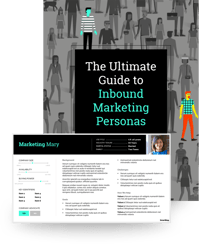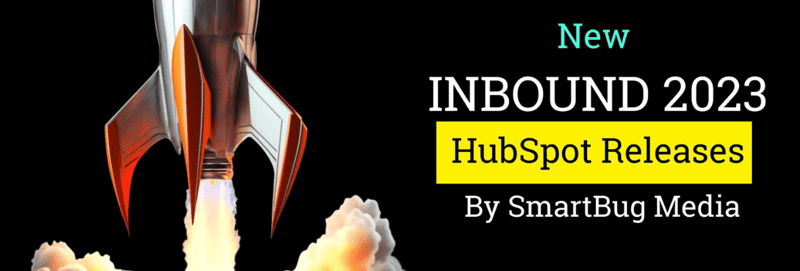
The Impact of Artificial Intelligence on Inbound Marketing
June 22, 2015
By Amber Kemmis
One day, my husband and I were doing what many married couples do - having an argument. In the heat of the debate over a very serious topic - which Starbuck’s drink is most popular (such an important issue, right?). Rather than drawing out the argument any further, I settled things quickly by reaching out to our trusted advisor (A.K.A. Google). Upon a quick search, the answer to the question was presented in the search results (In case you're curious, the most popular drink varies by region). The argument was settled, and we could go on with our day.
In a sense, Google’s ability to instantly resolve an argument is a good thing. A husband and wife no longer have to deal with unresolved conflict over Starbuck’s most popular drink. Conversely, it’s also not completely positive because it does the “thinking” for us. With a fine-tuned machine like Google, many times we don’t have to use our problem solving skills to reach a solution. The “thinking” capabilities of Google’s platform are scary yet fascinatingly promising. And, they are very much a good representation of what artificial intelligence has in store in the future for inbound marketing.
What Is Artificial Intelligence (AI)?
Artificial intelligence (AI) is the use of computer systems to mimic human decision making, problem solving and reasoning. It is an area of computer science that attempts to reach the level of intelligence in humans through the use of computers and software. In some instances, you may see artificial intelligence used interchangeably with machine learning; however, the terms do differ. Machine learning is an area of artificial intelligence that aims to use behavioral and learning principles in algorithms to help achieve artificial intelligence in software without programming. In this blog, we’ll focus on the broader topic of artificial intelligence.
How Does AI Impact Inbound Marketing?
As you likely know, inbound marketing is an approach to online marketing that naturally brings in customers through campaigns that provide the customer value and make it easy for the customer to find the company online when they need them. In inbound marketing, the customer and their needs are at the foundation of marketing activities. To put the customer at the center of marketing campaigns requires constant collection and measurement of the customer’s online activity. Inbound marketing and automation software like HubSpot helps to do this and collect the data needed for artificial intelligence to work.
AI Evolves Inbound Marketing Technology
Because of the goals driving inbound marketing, the data and capabilities of inbound marketing software has grown exponentially. Inbound marketer’s have at their disposal a mass amount of data that can be mined and analyzed to help make predictions and decisions as to where to focus future marketing campaigns. These goals have driven a need for more complex technology solutions. Technology solutions that are evolving to encompass artificial intelligence.
For example, InboundWriter.com is a software that allows marketers to gain predictions in performance on content ideas before publishing them. The software’s algorithm uses real-time web data to take the guesswork out of content. As this example demonstrates, AI is already making a subtle impact on inbound marketing and has been since inbound’s inception.
Google’s AI Investments & Inbound Marketing
In a Search Engine Land article published in March, Nate Dame emphasizes that Google has been investing heavily in AI technology and talent in recent years. Considering the fact that Google can provide an answer to nearly every question we have and even predict the question we are asking as we type it into the search bar, this investment in AI technology is clearly paying off for Google. However, are Google’s AI capabilities going to be a hindrance or facilitator to inbound marketing campaigns?
Because both Google’s algorithm changes and inbound marketing share a common goal to put the customer first, it’s likely going to be a facilitator to inbound marketing. As long as inbound marketers focus on creating content built for their customers not search engines, Google’s AI capabilities will work in their favor.
AI Is Only as Good as the Data Mined
Marketers are already beginning to see the wrath of data overload, but because artificial intelligence relies heavily on data, data overload could have negative implications for AI. To make AI work in inbound marketing, marketers need to improve the data they have, keep it up-to-date and gather it in real-time. With accurate data, AI coupled with big data can have a big impact on the performance of campaigns.
Performance Will Improve with AI
A major force that’s driving artificial intelligence growth in inbound marketing is the need for improved performance and ROI from campaigns. Marketers have more and more pressure to maximize results while minimizing costs. AI technology helps to provide marketers with predictive analytics that will improve the performance of their campaigns.
Looking to the Future with Artificial Intelligence
In a recent article from Marketing Land, Paul Roetzer describes well what the future of AI has in store for marketing campaigns:
Imagine an algorithm-based recommendation engine for all major marketing activities and strategies. The engine will use a potent mix of historical performance data, industry and company benchmarks, real-time analytics, and subjective human inputs, layered against business and campaign goals, to recommend actions with the greatest probabilities of success. If built or acquired by marketing technology heavyweights, these tools will add algorithmic marketing strategy to the automation mix.
Although for some marketers AI is seen as a threat because the more we can rely on AI the less we’ll need humans to the do job, we’ll always need humans to ensure that these systems are working properly. According to a 2013 study by Oxford, artificial intelligence could replace nearly half of U.S. jobs. Yes, artificial intelligence replaces some jobs, but it also creates jobs in other areas, and as mentioned, humans will always be needed to ensure AI is working as it should. After all, we’re already an overworked society. Why not let machines carry some of that load to make us even more efficient?

About the author
Amber Kemmis was formerly the VP of Client Services at SmartBug Media. Having a psychology background in the marketing world has its perks, especially with inbound marketing. My past studies in human behavior and psychology have led me to strongly believe that traditional ad marketing only turns prospects away, and advertising spend never puts the right message in front of the right person at the right time. Thus, resulting in wasted marketing efforts and investment. I'm determined to help each and every one of our clients attract and retain new customers in a delightful and helpful way that leads to sustainable revenue growth. Read more articles by Amber Kemmis.








